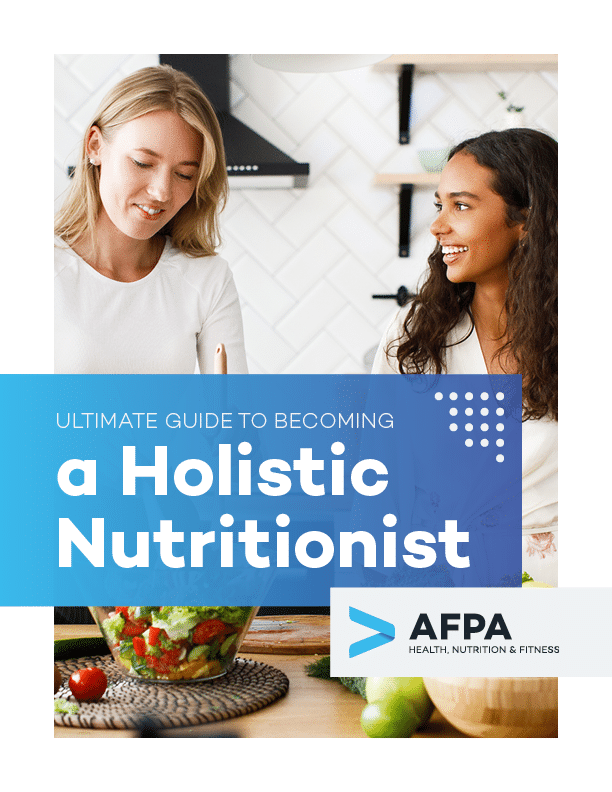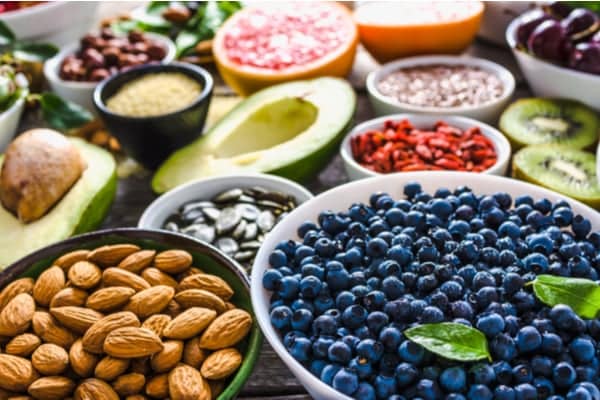In recent years, functional foods have become an increasingly popular buzzword for a good reason. With the increase in unhealthy dietary habits in America, our population is experiencing an unprecedented surge in lifestyle diseases.
Heart disease is the leading cause of death for both men and women. One in every four deaths in America is caused by heart disease. Someone in this country has a heart attack every forty seconds. Each minute, more than one person in the United States dies from a stroke.
Changes in lifestyle are essential to reduce the risk of developing heart-related health issues. Cutting down on smoking and drinking alcohol, exercising regularly, and eating healthy are basic steps.
Diet can play a huge role in determining whether you can live a long and fruitful life. Certain “functional foods” have been proven to be highly effective in maintaining optimal heart health.
What Are Functional Foods?
Not all foods have the same micronutrient and macronutrient content.
Functional foods are foods that provide health benefits beyond basic nutrition. Studies have shown that certain nutrient-dense foods promote optimal health and help reduce the risk of disease.
The Academy of Nutrition and Dietetics define functional foods as “whole foods along with fortified, enriched, or enhanced foods that have a potentially beneficial effect on health when consumed as part of a varied diet on a regular basis at effective levels based on significant standards of evidence.”
For example, a bowl of white rice doesn’t provide any noticeable nutritional value apart from carbohydrates. However, a bowl of oatmeal contains soluble fiber that can help lower cholesterol levels. This qualifies it as a “functional food.”
When it comes to functional foods, experts say that they should be consumed as “whole foods” rather than supplements. Whole foods are more efficient because all the compounds within the food work synergistically.
How Food Can Improve Heart Health
Your heart health is a complex function with many variables, such as blood pressure and arterial function. Studies show that a greater intake of foods such as leafy green vegetables can significantly improve heart health.
Each new study points toward a strong link between diet and heart disease. What you put on your plate has a direct bearing on levels of cholesterol, triglycerides, and inflammation.
Thankfully, we’re gaining a better understanding of exactly how micronutrients can help us improve heart health.
Micronutrients That Support a Healthy Heart
Micronutrients can influence factors such as triglycerides, inflammation, and cholesterol levels: all of which can trigger heart disease. Even if you don’t suffer from a heart condition, eating healthy can significantly reduce the risk of heart disease.
Typical “junk” food is usually packed with sodium, sugar, and unhealthy fats. By limiting such junk food and adding healthy micronutrients, we give our hearts the chance to work at full potential.
Some essential heart-friendly micronutrients are:
Omega-3 Fatty Acids
Omega-3 fatty acids, such as DHA and EPA, are found in fatty fish, including tuna, cod, and salmon. There are also smaller amounts in nuts, such as almonds, pecans, and walnuts.
Here are a few science-backed benefits of omega-3 fatty acids:
- Omega-3s improve blood vessel elasticity.
- Omega-3s may help curb inflammation that can otherwise lead to heart attacks.
- Omega-3s may also improve memory and mood.
- Omega 3s can help lower the risks of getting rheumatoid arthritis.
Plant Sterols and Plant Stanols
Also called phytosterols, plant sterols and stanols come from plants, and they’re naturally in foods such as seeds, nuts, legumes, fruits, and vegetables.
These plant-based substances reduce the risk of cardiovascular disease by blocking the absorption of cholesterol in the small intestine. Studies show that this lowers harmful LDL cholesterol without affecting levels of good HDL cholesterol.
Incorporating plant sterols and stanols is a great way to support a heart-healthy diet. The research is pretty compelling and shows that these plant substances have cardioprotective benefits.
Calcium
Plenty of foods are rich in calcium, and many do not contain dairy. This is good news, particularly for vegans and people who are lactose intolerant because they cannot fully digest dairy products. Click here for a complete list of calcium-rich foods.
Here are a few health benefits of including calcium into your diet:
- Calcium helps maintain healthy bones and teeth.
- Calcium helps conduct nerve impulses.
- Calcium helps regulate the heartbeat.
The RDA of calcium for adults is 1,000 mg up to age 50. Elderly adults over 50 should consume 1,200 a day.
Vitamin D
Due to the increased time spent indoors, much of our population is deficient in vitamin D.
Vitamin D can help both body and heart health in many ways, including:
- Vitamin D helps keep the immune system functioning properly.
- Vitamin D may prevent high blood pressure and artery damage.
- Vitamin D supports the health of the immune system, brain, and nervous system.
A vitamin D deficiency has been linked to an increased risk of stroke, heart disease, and heart failure.
The recommended dietary allowance (RDA) of vitamin D for adults is 15-20 micrograms.
Fiber
Fiber is found in nuts, grains, beans, fruits, and vegetables, and many Americans don’t get enough, especially through the standard Western diet. Not only does fiber help lower bad LDL cholesterol and decreases the risk of heart disease, but it also aids in digestion and helps prevent certain cancers. There are two kinds of fiber: insoluble fiber and soluble fiber. Both are equally important, and it’s crucial for an effective, heart-healthy diet. The RDA of fiber is 25 grams for women and 38 grams for men. If you aren’t getting enough fiber from whole foods, consider adding fiber supplements, such as psyllium husk powder, into your diet.
Top Functional Foods for Heart Health
While there’s no guarantee that consuming certain types of foods will eliminate all risk of heart disease, it can be lowered for sure.
Here are some foods you should consider eating to maximize your heart health:
Fish
For a healthy heart and optimum protein intake, fish can be a much better choice than red meat. Consuming a minimum of one or two servings of fish per week can help reduce the risk of a heart attack.
The omega-3 fatty acids found naturally in fish reduce inflammation throughout the body. This reduces the risk of strokes.
Omega-3 fatty acids can lower triglycerides, reduce blood clotting, decrease blood pressure, and minimize irregular heartbeats. Salmon, trout, mackerel, and tuna contain generous amounts of omega-3 fatty acids. A few plant-based sources that are rich in omega-3 fatty acids include tofu, tempeh, and edamame.
A 3.5 oz serving of salmon provides approximately 27 grams of protein, 216 calories, and 1.4 grams of omega-3s.

Get Your Free Guide to Becoming a Holistic Nutritionist
Learn about the important role of holistic nutritionists, what it takes to be successful as one, and how to build a lucrative, impactful career in nutrition.
Fruits and Vegetables
Fruits and vegetables are packed with fiber, vitamins, minerals, and antioxidants. A diet filled with a rich variety of fruits and vegetables can help protect against heart disease, stroke, and even other lifestyle diseases such as diabetes.
Cruciferous vegetables, such as kale, broccoli, spinach, and collard greens, are a rich source of healthy antioxidants and vitamin K. Vitamin K helps protect your arteries by promoting optimal blood clotting. They’re also dense with dietary nitrates, which decrease arterial stiffness.
Fruits, such as apples, pears, and oranges, help lower bad cholesterol and improve blood vessel function. Consuming 8-10 servings of fruits and vegetables can lower your risk of cardiovascular disease significantly.
Berries
It’s often the case that healthy food isn’t considered particularly tasty. However, berries are a glorious exception to this trend. Berries are delicious sources of antioxidants and phytonutrients (plant-based nutrients).
Here are some varieties that you should consider adding to your diet:
- Raspberries are an excellent source of fiber and antioxidant polyphenols called ellagitannins, which can help reduce oxidative stress.
- Strawberries are a rich source of vitamin C and may help reduce many risk factors such as inflammation, triglycerides, and oxidative stress.
- Acai berries have grown in popularity as supplements because of their high antioxidant content and ability to reduce blood cholesterol.
Legumes
Legumes, such as lentils, peas, chickpeas, beans, soybeans, and peanuts, are great for maintaining heart health. Eating legumes regularly can help lower your overall cholesterol and triglyceride levels.
A high percentage of soluble fibers, phytosterols, and antioxidants make legumes a dietary essential. Studies have shown that including a cup of legumes in your daily food intake can be of significant help by:
- Lowering “bad” LDL cholesterol
- Increasing “good” HDL cholesterol
- Reducing blood pressure
- Helping maintain healthy blood glucose levels
- Helping lower body fat percentage
Legumes are also a healthier source of protein than red meat because of the absence of animal fat.
Beans
Beans are an inexpensive low-fat, high-fiber protein source. They provide multiple phytochemicals that help reduce your risk of having a stroke.
Beans are an excellent source of soluble fiber, which can bind cholesterol and triglycerides in the digestive system. This helps eliminate them from the digestive tract before they get into circulation.
Studies demonstrate that about 10 grams of soluble fiber a day (the amount in a cup of beans) reduce LDL cholesterol significantly. Beans also contain saponins and phytosterols, which lower bad cholesterol and triglycerides.
Beans also help you restrict your food intake. A serving of beans will help you feel more satiated because the rich fiber content quickly fills your stomach. It also causes a slower rise in blood sugar.
Extra Virgin Olive Oil (EVOO)
It’s not a coincidence that people in the Mediterranean tend to live longer than the global average. EVOO is a staple in the Mediterranean diet and has many health benefits:
- EVOO s dense with antioxidants, which can help reduce inflammation and decrease the risk of stroke.
- It’s rich in monounsaturated fatty acids (good fats), which can improve your heart health.
- A higher intake of EVOO in a diet has been linked to lower diastolic blood pressure.
Consider taking advantage of the benefits of EVOO by using it to shallow-fry vegetables or by drizzling it on cooked food.
Whole Grains
Modern food technology strips grains of essential nutrients. Whole grains are those which contain all three nutrient-rich components: the germ, endosperm, and bran.
Whole grains are a rich source of dietary fiber, which helps reduce blood cholesterol levels. Additionally, they also provide a variety of essential nutrients such as thiamin (vitamin B1), riboflavin (vitamin B2), niacin (vitamin B3), folate (vitamin B9), iron, magnesium, and selenium.
Some commonly available whole grains are:
- Oatmeal
- Brown rice
- Wild rice
- Whole grain barley
- Whole wheat
- Graham flour
The importance of whole grains in our diet is such that the American Heart Association recommends that at least half the grains you consume are whole grains.
Nuts and Seeds
Nuts and seeds help your heart health by lowering the low-density lipoprotein (LDL) cholesterol levels. LDL is a major factor behind the buildup of plaque within blood levels. Eating more nuts and seeds has been linked to lower heart inflammation.
Nuts boost your heart health in many ways:
- Apart from fish, nuts are the best sources of omega 3 fatty acids.
- They’re dense with vitamin E, which prevents the development of plaque within arteries.
- Nuts are a source of L-arginine, which helps boost the flexibility of artery walls
- “Good” fats found in nuts combat the effects of bad cholesterol (LDL).
You should consider adding healthy nuts, such as walnuts, almonds, macadamia nuts, hazelnuts, and pecans, to your diet.
Heart-Healthy Drinks
Apart from solid foods, the beverages we consume also matter a lot when it comes to heart health. Sugary drinks or sugar-sweetened beverages (SSBs), such as energy drinks and sodas, provide little nutritional value and trigger lifestyle diseases.
Some beverages can be of enormous help in maintaining optimal heart health:
- Water helps at a micro-level by carrying nutrients to each cell and helping essential chemical reactions.
- Green tea provides a number of health benefits, from increased metabolism to improved insulin sensitivity.
- Coffee has been shown to lower the risk of death from cardiovascular disease in a study of more than half a million people.
- Beetroot Juice is full of healthy, dietary nitrate. Researchers think nitrate may be used by your body to keep your blood vessels supple and flexible, which keeps your blood pressure low.
- Cranberry juice (100%) has high concentrations of flavonoids, which, like red wine, help to promote circulation and prevent cardiovascular disease.
These Functional Foods Are Highly Effective in Maintaining Optimal Heart Health
There are various natural ways to help decrease the risk of cardiovascular disease and live a long and healthy life. Getting rid of junk food such as processed carbohydrates and replacing them with healthy functional foods is a great way to start.
Not only are the foods listed above great for your heart, but they also generate energy properly for your entire body to help it function like a well-oiled machine.
Consider adding at least some of the mentioned functional foods to your diet to reduce the risk of cardiovascular disease.




